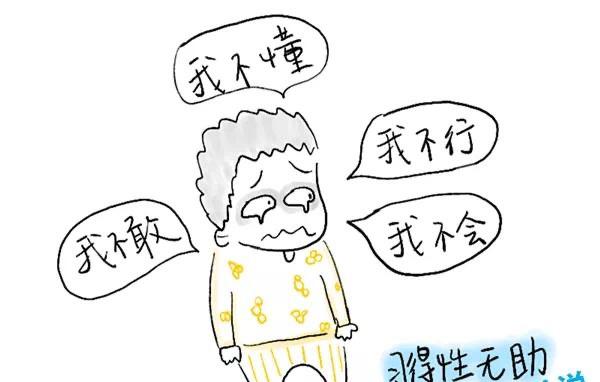The child is naturally positive and likes to try: soon after the child is born, he looks around with curious eyes; when he can control his movements, he has to touch everywhere, crawl everywhere, drill everywhere... Of course, because it is the first time, there will be dangers and mistakes.
At this time, if the adults sternly shout "Broken!" Or a fussy exclamation of "Danger, don't!" You won't! Don't do it! He would have shrunk his hand back as if he had been electrocuted.

Over time, he became less confident in what he was going to do, because he didn't know if adults should say it out loud after they were done. As a result, he may become a well-behaved child as you wish, not touching anything easily, not daring to touch anything, but may have planted the seeds of helplessness in the young heart.
This process of psychological development of children is very suitable for a famous psychological experiment. The experimenter put the dog in a cage, installed a buzzer, and as long as the buzzer was abnormal, it gave an uncomfortable electric shock, and the dog in the cage would be hit. After many such experiments, the dog was smarter, and as long as the buzzer was struck, the dog lay down. The experimenters changed the experimental process, they opened the cage door before the electric shock, but when the buzzer thought, the dog not only did not run, but did not wait for the electric shock to strike and fell to the ground first and began to sound and tremble.
Later, people called this phenomenon of active escape but desperately waiting for pain to come, called learned helplessness. Individuals with learned helplessness experience some kind of learning and exhibit negative mental states in terms of emotional cognition and behavior.
Learned helpless students develop strategies of self-impotence, which ultimately leads to their inability to work hard in their studies and avoid failure.
When children feel helpless, as parents, we are responsible. Because the feeling of helplessness is learned, not innate, it is a negative psychological phenomenon that is slowly formed after countless repetitions and countless blows. Perhaps, it may be which of our words and expressions has a negative hint to the child, making the child lack self-confidence, willing to fall behind, willing to fail.
Everyone's fate is in their own hands, if you want to have a good life course, you must constantly absorb positive energy, so that you appreciate your own personality components more. However, when the individual attributes the lack of control to permanent rather than temporary difficulties; to his own inner personality factors, not the situational factors encountered; this is an irrevocable failure, his own life is like this, and he is doomed to be a loser forever. Under such negative self-suggestion, a series of negative results will occur. No matter how full of vitality and vitality life, it will become sluggish and depressed.
In the growth of children, parents must pay attention not to give children inappropriate evaluation methods, do not let children immerse themselves in the negative emotions of loss and failure for a long time, or let children feel the joy of success, this sense of satisfaction can motivate children to form positive self-judgment. Even if you are not successful, you can actively attribute it to your lack of effort, not your own poor ability. Every child has strengths, and parents should help them discover their own strengths and help overcome the sense of despair brought about by learned helplessness.